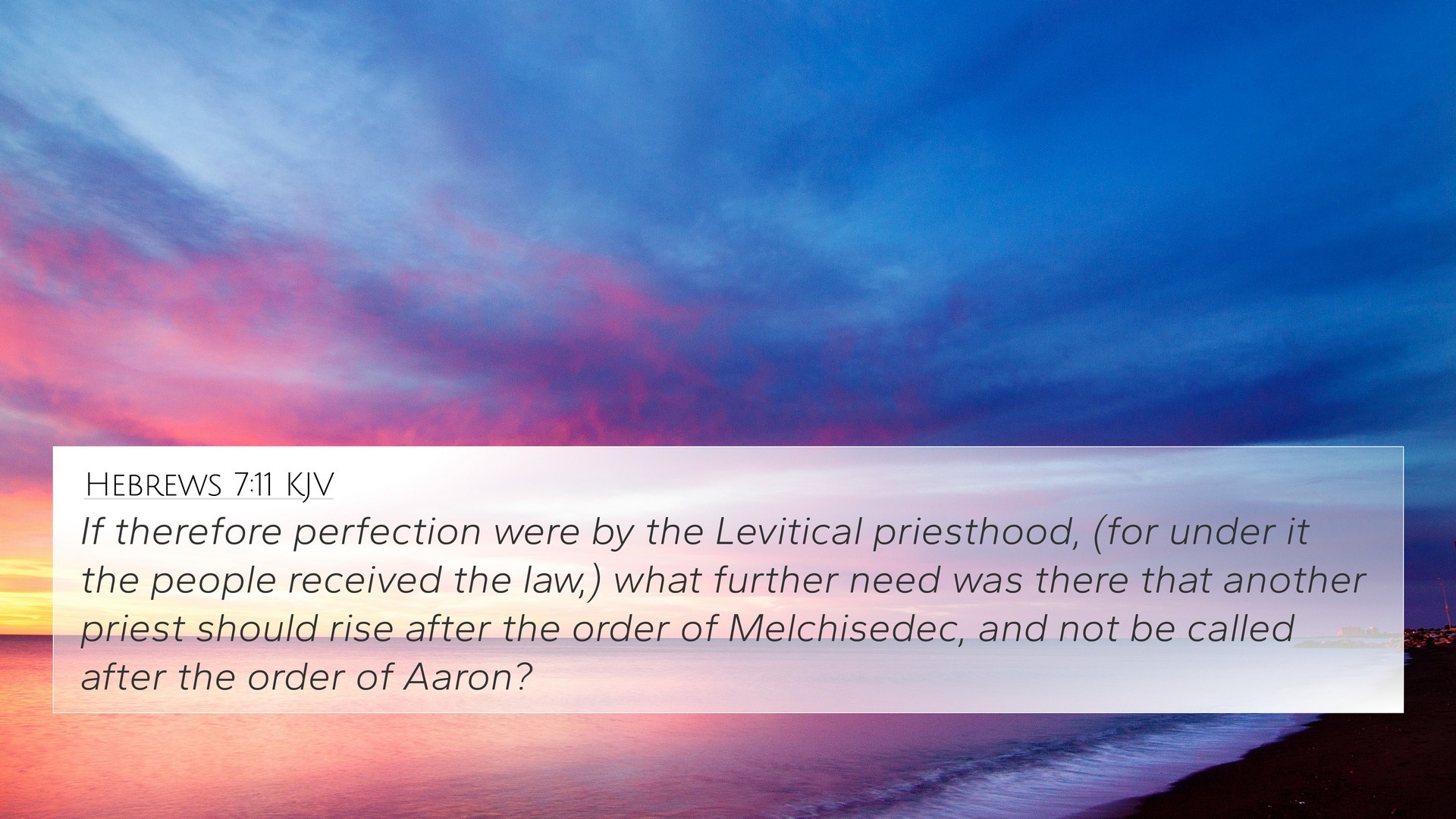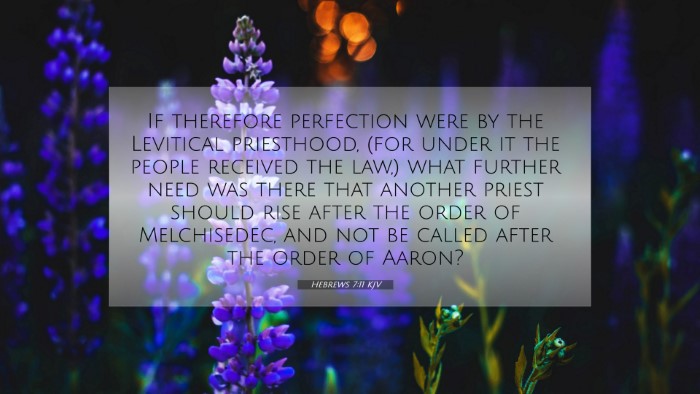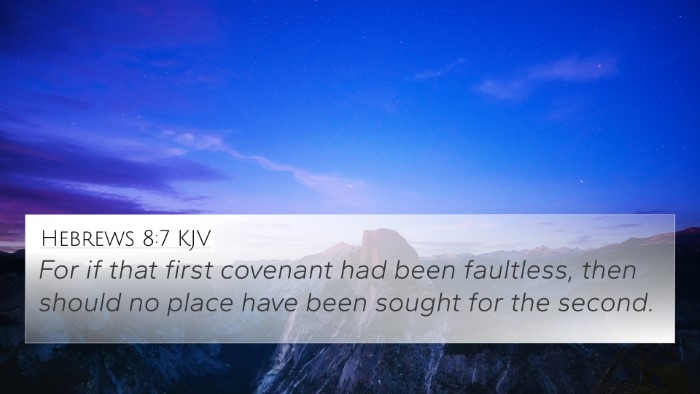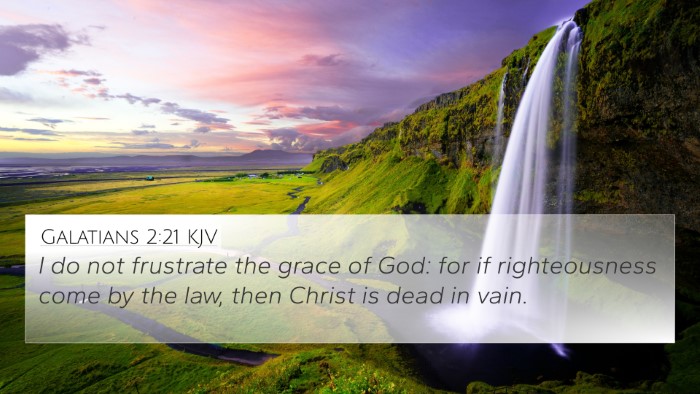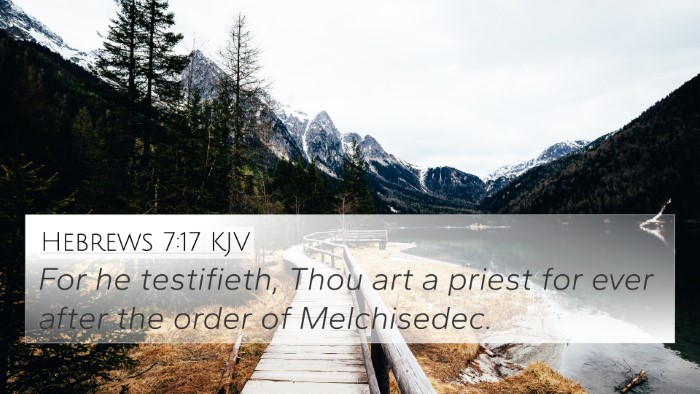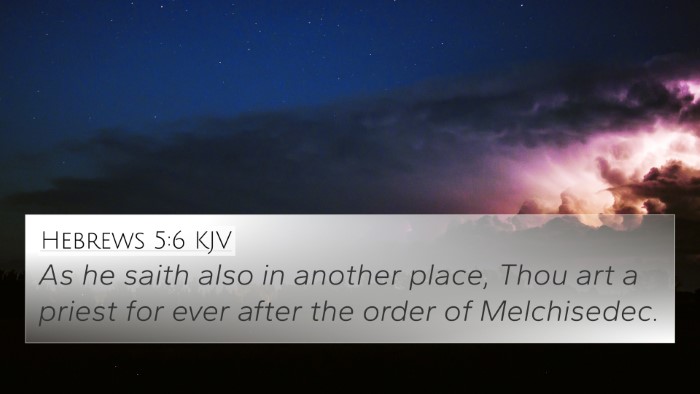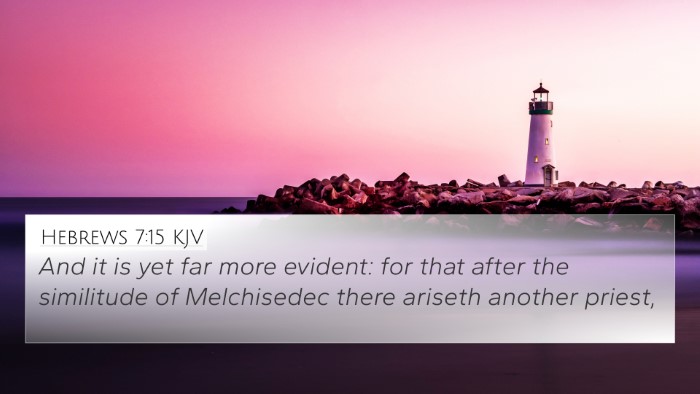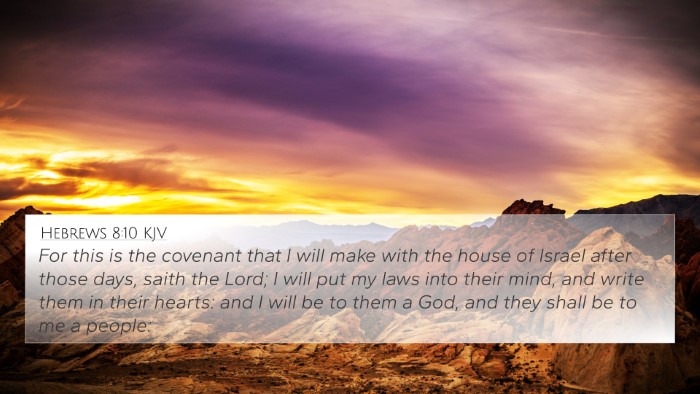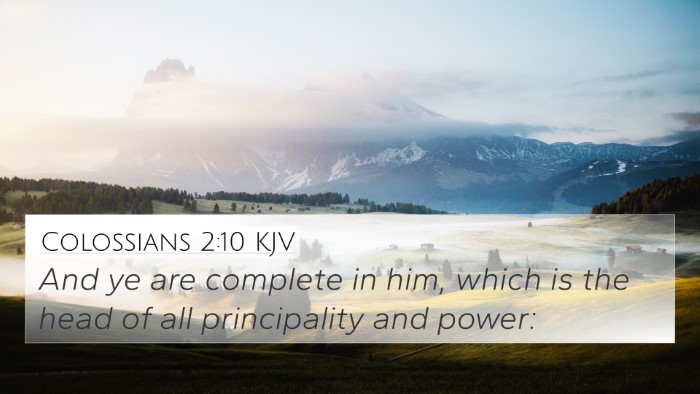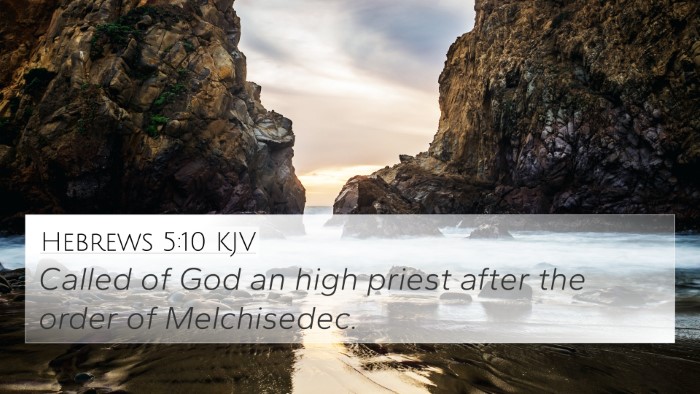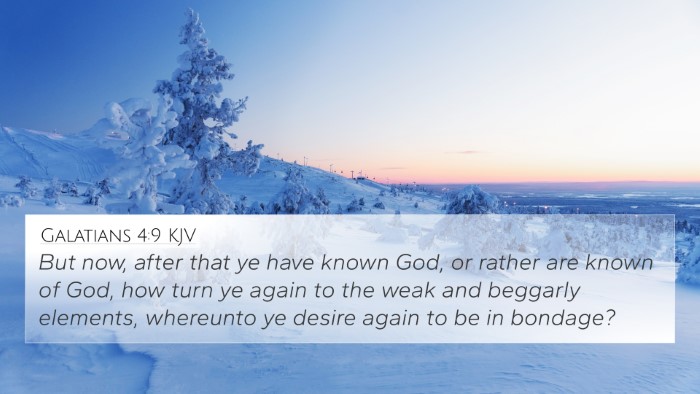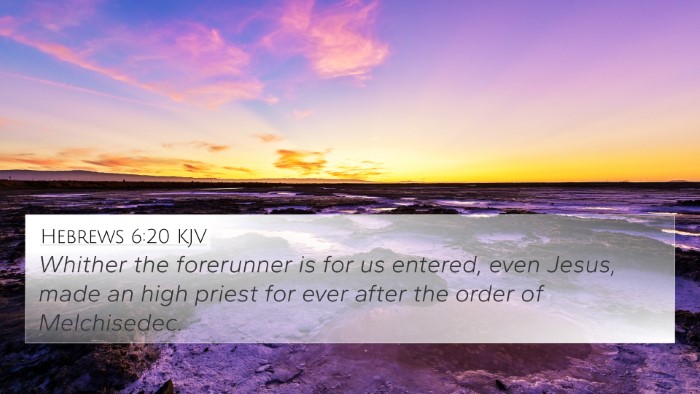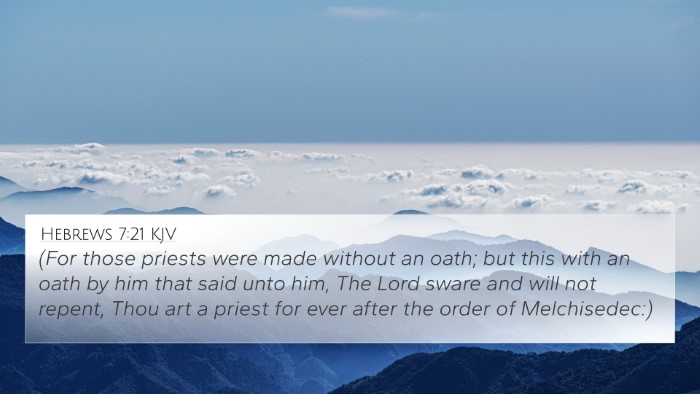Understanding Hebrews 7:11
The verse Hebrews 7:11 states:
"If therefore perfection were by the Levitical priesthood, (for under it the people received the law,) what further need was there that another priest should rise after the order of Melchisedec, and not be called after the order of Aaron?"
Summarized Interpretation
This verse emphasizes the distinction between the Levitical priesthood and the priesthood of Melchizedek. It challenges the completeness of the Levitical system, implying that a greater priesthood is necessary for true perfection in fulfilling God's covenant.
Insights from Public Domain Commentaries
- Matthew Henry: He explains that the Levitical priesthood, while essential, was limited and unable to bring total redemption. The introduction of another priesthood, like that of Melchizedek, signifies a comprehensive plan for salvation, aimed at completing what was lacking in the old system.
- Albert Barnes: Barnes highlights the argument that if the Levitical priesthood could achieve perfection, there would be no need for another priest. The implication points to the sufficiency of Christ’s priesthood, which brings in a new covenant grounded in better promises.
- Adam Clarke: Clarke elaborates on the priesthood of Melchizedek, noting that it predated the Levitical order and holds a unique eternal significance. He suggests that this eternal priesthood represents the believer's direct access to God through Christ.
Connections to Other Scripture
Hebrews 7:11 can be cross-referenced with the following verses:
- Genesis 14:18-20 - Describes the encounter between Abraham and Melchizedek.
- Psalm 110:4 - References the eternal priesthood “after the order of Melchizedek.”
- Hebrews 5:6 - Provides affirmation of Jesus as a priest in the order of Melchizedek.
- Hebrews 7:12 - Further discusses the change in priesthood necessity.
- Romans 3:20-21 - Explains the inadequacy of the law for achieving righteousness.
- Hebrews 8:6 - Talks about a better covenant established on better promises.
- 1 Peter 2:9 - Discusses the priesthood of all believers, highlighting their royal and holy calling.
Application for Readers
The meaning of Hebrews 7:11 encourages believers to acknowledge the superiority of Christ’s priesthood over the historical Levitical order. This is vital in understanding how the New Testament fulfills the Old Testament promises and the transformative power of grace through Christ.
Tools for Bible Cross-Referencing
For those studying this verse and its connections, various tools and methods can enhance understanding:
- Bible Concordance: Helps locate specific verses and themes throughout the Bible.
- Cross-Reference Bible Study: Involves linking scriptures and analyzing their relationships.
- Bible Cross-Reference Guide: A useful resource for identifying related passages.
- Cross-Referencing Bible Study Methods: Strategies to aid thematic and contextual understanding.
- Bible Chain References: A technique to follow a biblical theme through various verses.
Conclusion
In summary, Hebrews 7:11 serves as a crucial pivot in the theology of the New Testament, showcasing the transition from the old covenant to the new. Understanding this verse and its connections enhances our knowledge of Christ’s role as the ultimate High Priest and its implications in our faith.
By engaging with the connections between Bible verses and employing cross-referencing techniques, believers can deepen their scriptural insight. This ongoing dialogue between the Old and New Testaments reveals the cohesive narrative of God's redemptive plan for humanity.
